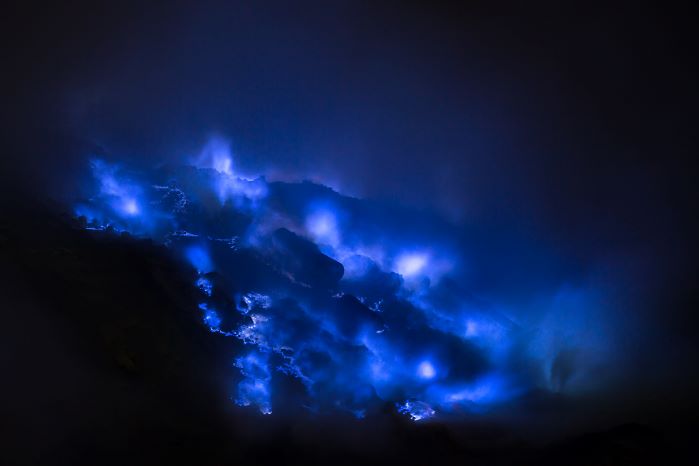
Jesus Will Be Our Judge and the Prospect of
Unbounded Joy in Heaven or Unbridled Horror in
Hell Are Almost Incomprehensible to the Human Mind!
by Mark Mountjoy
Both the heights of a joyful eternity in God's presence and the depths of a Christ-less eternity separated from God's blessings are almost beyond our finite human minds to fully conceive. On the one hand, the Bible hints at wonders in Heaven stacked endlessly beyond our wildest imaginations. As Paul wrote, "No eye has seen, no ear has heard, and no mind has imagined what God has prepared for those who love him." (1 Cor. 2:9). That is staggering to ponder when we realize the most wondrous thing we've experienced on Earth is but a small foretaste of Heaven's glory.
And conversely, the Bible warns that hell involves outer darkness, weeping and gnashing of teeth, and torment day and night forever and ever. The strongest language available is used to hint at the anguish of an eternal void of God's presence and love. As the Scriptures present it, both poles are almost incomprehensible - boundless joy or immeasurable sorrow continuing without end. I think this communicates the grave urgency of human choice regarding God. This life offers a fleeting chance to lock in a destiny for unbounded pleasure or indescribable pain when measured against eternity. Our short mortal minds can scarcely grasp what hangs in the balance based on the path we walk during our earthly years. But Christ offers Himself as the salvation key to escape eternal loss and horror, instead opening the door for inexpressible eternal victory - the stakes are infinitely beyond our full conception.
People ask, How can Jesus be a loving God and also be capable of sending people to an everlasting lake of fire as described in Matthew 25:41-46 Revelation 14:9-11 and Revelation 20:14-15?
Here are some key things that could be helpful to address in seeking to reconcile Jesus' loving nature with His judgment according to Matthew 25:41-46 and the Book of Revelation:
First, emphasize God's inherent holiness and justice as complementary to His love. While He is a God of infinite grace and mercy, allowing unrighteousness and rebellion against Himself to go on forever would compromise His perfection. He balances love and justice.
Secondly, highlight that the "lake of everlasting fire" is not a place God predetermined certain people for, but rather it results from continued, willfull rejection of God's generous love and truth. People consciously choose darkness over light by not receiving Christ. Their persistent rejection necessitates judgment.
Provide the perspective that hell is more the absence of God and His blessings than an actively imposed suffering or torture. Those in hell have chosen separation from God - He simply gives them what they decided of their own free will. The suffering comes inherently from excluding the source of love and joy.
Discuss how warnings about hell reflect the tragic, devastating weight of turning one's back on the Creator - the loss of eternity in intimate connection with Him. These warnings convey that the most hopeless, miserable destiny possible is one our own stubbornness can bring if we persist in wanted complete independence from God.
Essentially you can paint hell as the unfortunate, regrettable outcome of men and women freely continuing to push God away and reject surrender to His wisdom, beauty and Lordship. They render themselves too prideful and warped to handle the delight of heaven. But God continually invited them with love - constantly hoping they would choose life with Him.
These elements could be helpful starting points in conveying Jesus as compassionate yet honest judge according to the eternal, unchangeable consequences of human decisions.
Related
What the Bible Really Teaches About
